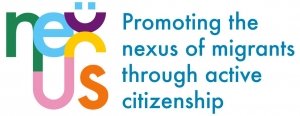The NEXUS project is an ERASMUS+ project (2019-1-ES01-KA203-065861), running from 2019 to 2022, that builds upon the literature to focus on empowering students (especially migrants) to exercise their rights, uphold human values, and contribute constructively to the society around them and the global community in general.
The project explores the relationship between digitally enabled participatory tools and democracy, including such dimensions as citizen demand, state power, collective action and mobilization, and culture. Building on the idea that many opportunities for meaningful civic learning exist in online environments, NEXUS uses technologies that are familiar and appealing to digital natives.
NEXUS aims at innovating the civic educational process resulting in increased participation of students in their communities. As a part of this innovation, a MOOC on Civic education has been developed for students with a migrant and diverse background, focusing on Civic education micro-learning units. Subsequently, a knowledge-sharing platform (building on open educational resources and practices) for civic educators has been developed, focus on student civic engagement in the form of a strategic framework that emphasizes how the social inclusion needs of students with diverse backgrounds (including migrants) can be addressed. Finally, the notion of Civics has be re-written to version 4.0, connecting students to institutions in the digital age. For that purpoose, an inventory of digital tools for Open Democracy and digital citizenship education has been compiled, together with a handbook for educators on civic education for a digital age.
The key messages about the project and its activities can be seen in the following images and the video below:









